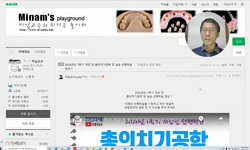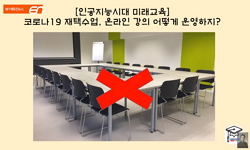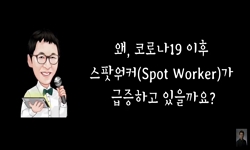The purpose of this study is to identify factors affecting COVID-19 Phobia. For analysis, data from 1,233 adults over 18 years of age who participated in the 2020 G Citizen’s Happiness Improvement Index Development and Actual Condition Survey�...
http://chineseinput.net/에서 pinyin(병음)방식으로 중국어를 변환할 수 있습니다.
변환된 중국어를 복사하여 사용하시면 됩니다.
- 中文 을 입력하시려면 zhongwen을 입력하시고 space를누르시면됩니다.
- 北京 을 입력하시려면 beijing을 입력하시고 space를 누르시면 됩니다.
https://www.riss.kr/link?id=A107261109
- 저자
- 발행기관
- 학술지명
- 권호사항
-
발행연도
2021
-
작성언어
Korean
-
주제어
코로나19 ; 두려움 ; 사회적 관계 ; 사회적 자본 ; COVID-19 ; Phobia ; Social Relationship Characteristics ; Social Capital
-
KDC
306
-
등재정보
KCI등재
-
자료형태
학술저널
-
수록면
285-307(23쪽)
-
KCI 피인용횟수
11
- DOI식별코드
- 제공처
- 소장기관
-
0
상세조회 -
0
다운로드
부가정보
다국어 초록 (Multilingual Abstract)
The purpose of this study is to identify factors affecting COVID-19 Phobia. For analysis, data from 1,233 adults over 18 years of age who participated in the 2020 G Citizen’s Happiness Improvement Index Development and Actual Condition Survey were used. Satistical analysis was performed to examine the degree of COVID-19 Phobia and the characteristics of the research participants. An analysis of the average difference in COVID-19 Phobia according to the personal/social relationship characteristics of respondents was conducted. In addition, multiple regression analysis was used to examine factors influencing the COVID-19 Phobia. Analysis results found that respondents’ COVID-19 Phobia was little higher. Women, the elderly, as well as those with higher education levels, depressive symptoms, or were unemployed, showed a higher COVID-19 Phobia. Second, individual characteristics that influenced the COVID-19 Phobia included gender, age, subjective health, and depression. In the case of women and the elderly, an those with poor subjective health or with depression, the COVID-19 Phobia increased. Third, characteristics of social relations that affected COVID-19 Phobia incluede the presence of a person for help, family trust, and a sense of belonging to the community and appeared to be high. In other words, it was found that family trust and sense of belonging to the community had a negative effect on COVID-19 Phobia. Based on the results of this study, policy and practical implications for reducing COVID-19 Phobia were suggested.
참고문헌 (Reference)
1 이승훈, "현대 사회의 위험과 위험 관리" 29 (29): 61-88, 2009
2 정지범, "한국인의 사회위험 지각과 정책적 함의" 한국행정연구원 2009
3 BBC News Korea, "한국은 감염병, 유럽은 기후변화가 가장 두렵다"
4 강윤재, "한국사회에서 정부신뢰가 위험인식에 미치는영향에 대한 실증 연구: <한국종합사회조사(KGSS) 2013>를 바탕으로" 한국거버넌스학회 23 (23): 71-95, 2016
5 보건복지부, "코로나바이러스감염증19 2020년 9월 국민정신건강실태조사" 2020
6 허중연, "코로나바이러스감염병-19 초기 유행의 임상 역학적 특성" 대한내과학회 95 (95): 67-73, 2020
7 질병관리청, "코로나바이러스 감염증-19 국내 발생동향"
8 이은환, "코로나19시대, 정신건강 안녕한가!" 경기연구원 1-25, 2020
9 이종원, "코로나19로 인한 사회문제와 그 해결책" 한국대학선교학회 (45) : 61-90, 2020
10 사이언스타임즈, "코로나19 시대, 심리방역이 필요하다"
1 이승훈, "현대 사회의 위험과 위험 관리" 29 (29): 61-88, 2009
2 정지범, "한국인의 사회위험 지각과 정책적 함의" 한국행정연구원 2009
3 BBC News Korea, "한국은 감염병, 유럽은 기후변화가 가장 두렵다"
4 강윤재, "한국사회에서 정부신뢰가 위험인식에 미치는영향에 대한 실증 연구: <한국종합사회조사(KGSS) 2013>를 바탕으로" 한국거버넌스학회 23 (23): 71-95, 2016
5 보건복지부, "코로나바이러스감염증19 2020년 9월 국민정신건강실태조사" 2020
6 허중연, "코로나바이러스감염병-19 초기 유행의 임상 역학적 특성" 대한내과학회 95 (95): 67-73, 2020
7 질병관리청, "코로나바이러스 감염증-19 국내 발생동향"
8 이은환, "코로나19시대, 정신건강 안녕한가!" 경기연구원 1-25, 2020
9 이종원, "코로나19로 인한 사회문제와 그 해결책" 한국대학선교학회 (45) : 61-90, 2020
10 사이언스타임즈, "코로나19 시대, 심리방역이 필요하다"
11 손헌일, "코로나19 극복을 위한 부산시 정책대응" 부산연구원 1-12, 2020
12 이나윤, "코로나-19 사회적 사태를 경험한 65세 이상 노인들의 정서적 변화에 대한 현상학적 연구" 한국엔터테인먼트산업학회 14 (14): 171-179, 2020
13 중앙일보, "코로나 탓인가, 줄잇는 살해 후 자살"
14 EBS, "코로나 걸릴까 봐 자퇴한 사연, 영 “학교 안 보내면 벌금” 논란"
15 최성민, "질병의 낭만과 공포 -은유로서의 질병-" 한국문학치료학회 54 : 315-344, 2020
16 이현숙, "질병, 치료, 종교: 한국 고대의 불교의학"
17 김현주, "중·고등학교 통합학급 장애학생의 학교소속감과 우울, 불안 간의 관계" 한국정서행동장애학회 31 (31): 153-175, 2015
18 박지은, "정부에 대한 신뢰도와 광우병 리스크 인식과의 관련성 연구" 사단법인 대한보건협회 36 (36): 27-34, 2010
19 왕재선, "정부신뢰와 과학기술에 의한 환경위험인식 - 비교론적 분석 -" 한국거버넌스학회 22 (22): 307-328, 2015
20 채종헌, "재난 불평등 해소와 사회통합 전략에 관한 연구" 한국행정연구원 2018
21 이주경, "장애노인의 우울과 불안에 미치는 영향요인" 사회과학연구소 23 (23): 189-212, 2012
22 한겨레, "우한폐렴 전파력, 메르스보다 높고 사스보다 낮아"
23 민정애, "영유아의 감염병예방접종에 관한 교사의 인식연구" 한국외국어대학교 대학원 2010
24 조병희, "신종플루의 사회학" 66 : 291-303, 2020
25 김란, "신종 인플루엔자 대유행시 야기될 윤리적 의사결정에 관한 지역주민의 인식" 한양대학교 공공정책대학원 2011
26 이지은, "사회적 약자 보호정책 선호 결정요인에 관한 연구: POUM 가설을 중심으로" 한국행정학회 49 (49): 359-390, 2015
27 김도균, "사회적 경제조직의 활동과 지역의 사회자본 확장: 대전지역의 사례를 중심으로" 사회과학연구소 25 (25): 281-306, 2014
28 이재완, "사회신뢰가 위험인식에 미치는 효과: 서울시민의 인식을 중심으로" 한국콘텐츠학회 18 (18): 518-526, 2018
29 김린, "북한이탈청소년의 스트레스와 사회적 지지가 우울 및 불안에 미치는 영향" 한국청소년학회 21 (21): 55-87, 2014
30 매일경제, "메르스와 비교도 마라.... 발길 뚝 끊긴 면세점"
31 스포츠경향, "메르스가 가져다 준 외출자제령…대중교통 이용객 ‘뚝’"
32 이동훈, "메르스(MERS) 감염에 대해 일반대중이 경험한 두려움과 정서적 디스트레스에 관한 탐색적 연구" 한국심리학회 35 (35): 355-383, 2016
33 매일경제, "메르스 때보다 코로나10 상황서 마스크 70% 가까이 더 팔려"
34 이예미, "두려움의 철학" 성균관대학교 TESOL대학원 2010
35 한혜경, "독거노인의 정신건강 수준과 영향요인" 한국노년학회 29 (29): 805-822, 2009
36 김성연, "대인관계 심리학적 모형으로 본 동성애자 자살" 고려대학교 대학원 2013
37 연합뉴스, "단톡방서 너무 많은 코로나 정보, 가족관계에 악영향"
38 매일경제, "국민 75% “메르스 위험하다”"
39 오마이뉴스, "감염병 불안감 부추기는 언론"
40 뉴시스, "“왜 안 죽었니” 중․아시아계 상대 ‘신종코로나 인종차별’ 확산"
41 충청투데이, "“당신의 마음은 안녕하십니까”, 코로나블루, 알고 대처하자"
42 세계일보, "[빅데이터로 본 세계] 메르스 한 달, 걱정 → 불신 → 공포로 전환"
43 Viklund, M., "Trust and risk perception in Western Europe: A cross-national study" 23 (23): 727-738, 2003
44 Saqib Amin, "The psychology of coronavirus fear : Are healthcare professionals suffering from corona-phobia?" 13 (13): 249-256, 2020
45 Cheng, C., "The psychology behind the masks : Psychological responses to the severe acute respiratory syndrome outbreak in different regions" 7 (7): 3-7, 2004
46 Kang, L., "The mental health of medical workers in Wuhan, China dealing with the 2019 novel coronavirus" 7 (7): e14-, 2019
47 Arpaci, I., "The development and initial tests for the psychometric properties of the COVID-19 Phobia Scale(C19P-S)" 164 : 110108-, 2020
48 Lau, A. L., "The SARS(Severe Acute Respiratory Syndrome)pandemic in Hong Kong : Effects on the subjective wellbeing of elderly and younger people" 12 (12): 746-760, 2008
49 Slovic, P., "The Perception of Risk" Earthscan Publications Ltd 2000
50 Portes, A., "The New Economic Sociology" Russell Sage Foundation 303-329, 2002
51 Weil, F., "The Burdens of Social Capital : How Socially-Involved People Dealt with Stress After Hurricane Katrina" 41 (41): 110-119, 2012
52 Chua, S. E., "Stress and psychological impact on SARS patients during the outbreak" 49 (49): 385-390, 2004
53 Cornwell, E. Y., "Social disconnectedness, perceived isolation, and health among older adults" 50 (50): 31-48, 2009
54 Klein, C., "Social capital or social cohesion : what matters for subjective well-being?" 110 (110): 891-911, 2013
55 Habibov, N. N., "Self-rated health and social capital in transitional countries : Multilevel analysis of comparative surveys in Armenia, Azerbaijan, and Georgia" 72 (72): 1193-1204, 2011
56 Lau, J. T., "SARS-related perceptions in Hong Kong" 11 (11): 417-424, 2005
57 Hawryluck, L., "SARS control and psychological effects of quarantine, Toronto, Canada" 10 (10): 1206-1212, 2004
58 Freudenburg, W. R., "Risk and recreancy : Weber, the division of labor, and the rationality of risk perceptions" 71 (71): 909-932, 1993
59 Main, A., "Relations of SARS-related stressors and coping to Chinese college students' psychological adjustment during the 2003 Beijing SARS epidemic" 58 (58): 410-, 2011
60 Nickell, L. A., "Psychosocial effects of SARS on hospital staff : survey of a large tertiary care institution" 170 (170): 793-798, 2004
61 Bonanno, G. A., "Psychological resilience and dysfunction among hospitalized survivors of the SARS epidemic in Hong Kong : a latent class approach" 27 (27): 659-, 2008
62 Dai Y., "Psychological impact of the coronavirus disease 2019 (COVID-19) outbreak on healthcare workers in China" 2020
63 Sun, L., "Prevalence and risk factors of acute posttraumatic stress symptoms during the COVID-19 outbreak in Wuhan, China" 2020
64 Liu, N., "Prevalence and predictors of PTSS during COVID-19 outbreak in China hardest-hit areas : Gender differences matter" 112921-, 2020
65 Lau, J. T., "Positive mental health-related impacts of the SARS epidemic on the general public in Hong Kong and their associations with other negative impacts" 53 (53): 114-124, 2006
66 Slimak, M. W., "Personal Values, Beliefs, and Ecological Risk Perception" 26 (26): 1689-1705, 2006
67 de Zwart, O., "Perceived threat, risk perception, and efficacy beliefs related to SARS and other(emerging)infectious diseases : results of an international survey" 16 (16): 30-40, 2009
68 Liu, S., "Online mental health services in China during the COVID-19 outbreak" 4 : e17-e18, 2020
69 Ren, X., "Mental health during the COVID-19outbreak in China: a meta-analysis" 1-13, 2020
70 Putnam, R. D., "Making Democracy Work: Civic Traditions in Modern Italy" Princeton University Press 1993
71 Maunder, R. G., "Long-term psychological and occupational effects of providing hospital healthcare during SARS outbreak" 12 (12): 1924-, 2006
72 Chen, F., "First case of severe childhood novel coronavirus pneumonia in China" 58 (58): 179-182, 2020
73 Sjöberg, L., "Factors in Risk Perception" 20 : 1-11, 2000
74 Hyun-soo Kim, H., "Exploring the Downside of Social Embeddedness : Evidence from a Cross-National Study" 97 (97): 232-251, 2016
75 Huang, L., "Emotional responses and coping strategies of nurses and nursing college students during COVID-19 outbreak" 2020
76 Wellman, B., "Different strokes from different folks : Community ties and social support" 96 (96): 558-588, 1990
77 Jacob Poushter, "Despite Pandemic, Many Europeans Still See Climate Change as Greatest Threat to Their Countries" Pew Research Center 2020
78 I. Savage, "Demographic Influences on Risk Perceptions" 13 : 413-420, 1993
79 South China Morning Post, "Coronavirus: sharing too much information on pandemic may have a negative impact on family relationships, Hong Kong survey finds"
80 Hurlbert, J. S., "Core networks and tie activation: What kinds of routine networks allocate resources in nonroutine situations?" 598-618, 2000
81 Robinson, N. S., "Cognition and Stress : Direct and Moderating Effects on Depressive Versus Externalizing Symptoms During the Junior High Transition" 104 : 453-463, 1995
82 Huang C., "Clinical features of patients infected with 2019 novel coronavirus in Wuhan, China" 395 (395): 497-506, 2020
83 Slovic, P., "Characterizing perceived risk" 91-125, 1985
84 Cohen, M. I., "Changing patterns of infectious disease" 406 (406): 762-767, 2000
85 서울대학교 의과대학, "COVID-19 치명률 상위10개국 현황 200918"
86 Hu, W., "COVID-19 outbreak increased risk of schizophrenia in aged adults" 2020
87 Reznik, A., "COVID-19 fear in Eastern Europe: Validation of the Fear of COVID-19 Scale" 1 : 2020
88 Chunfeng Xiao, "A Novel Approach of Consultation on 2019 Novel Coronavirus (COVID-19)-Related Psychological and Mental Problems: Structured Letter Therapy" 대한신경정신의학회 17 (17): 175-176, 2020
89 신지윤, "2015년 한국 메르스 사태 1년 이후 생존자들의 정신과적 문제" 대한신경정신의학회 58 (58): 245-251, 2019
동일학술지(권/호) 다른 논문
-
의도적 망각에서 억제전략과 간섭전략에 따른 기억수행의 차이
- 충남대학교 사회과학연구소
- 김송희(Song Hee Kim)
- 2021
- KCI등재
-
- 충남대학교 사회과학연구소
- 김학성(Hak-Sung Kim)
- 2021
- KCI등재
-
여성 노인의 자전적 내러티브에 기반한 ‘집’의 장소성: 노인요양시설 거주자를 중심으로
- 충남대학교 사회과학연구소
- 김서현(Seohyun Kim)
- 2021
- KCI등재
-
- 충남대학교 사회과학연구소
- 배관표(Kwanpyo Bae)
- 2021
- KCI등재
분석정보
인용정보 인용지수 설명보기
학술지 이력
| 연월일 | 이력구분 | 이력상세 | 등재구분 |
|---|---|---|---|
| 2028 | 평가예정 | 재인증평가 신청대상 (재인증) | |
| 2022-01-01 | 평가 | 등재학술지 유지 (재인증) |  |
| 2019-01-01 | 평가 | 등재학술지 유지 (계속평가) |  |
| 2016-01-01 | 평가 | 등재학술지 선정 (계속평가) |  |
| 2015-12-01 | 평가 | 등재후보로 하락 (기타) |  |
| 2011-01-01 | 평가 | 등재학술지 선정 (등재후보2차) |  |
| 2010-01-01 | 평가 | 등재후보 1차 PASS (등재후보1차) |  |
| 2008-01-01 | 평가 | 등재후보학술지 선정 (신규평가) |  |
학술지 인용정보
| 기준연도 | WOS-KCI 통합IF(2년) | KCIF(2년) | KCIF(3년) |
|---|---|---|---|
| 2016 | 1.18 | 1.18 | 1.2 |
| KCIF(4년) | KCIF(5년) | 중심성지수(3년) | 즉시성지수 |
| 1.23 | 1.17 | 1.625 | 0.41 |





 DBpia
DBpia







